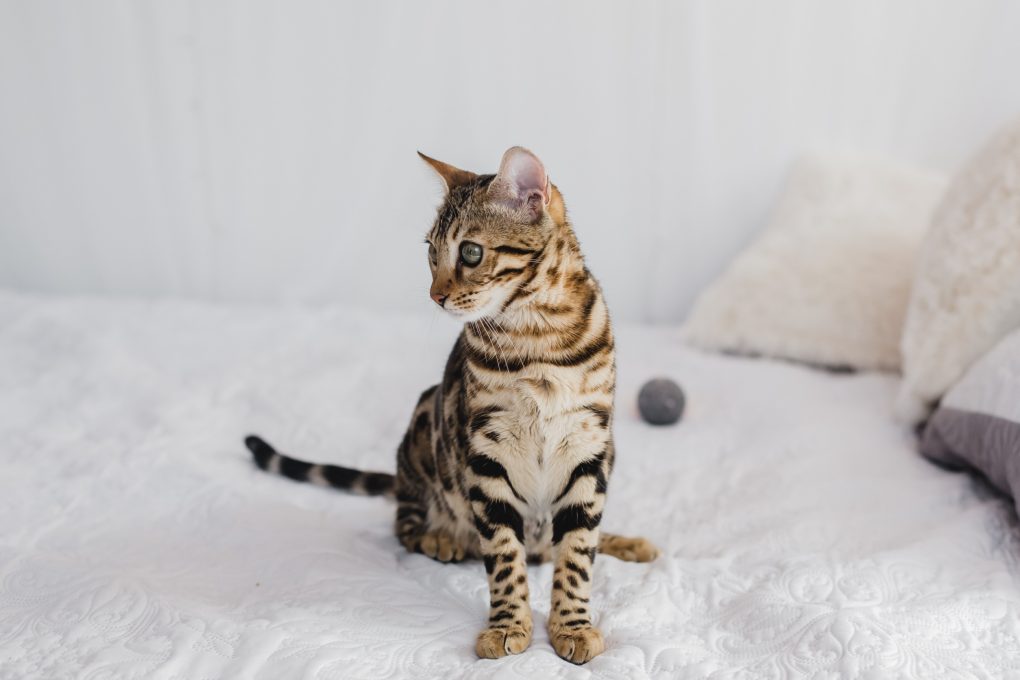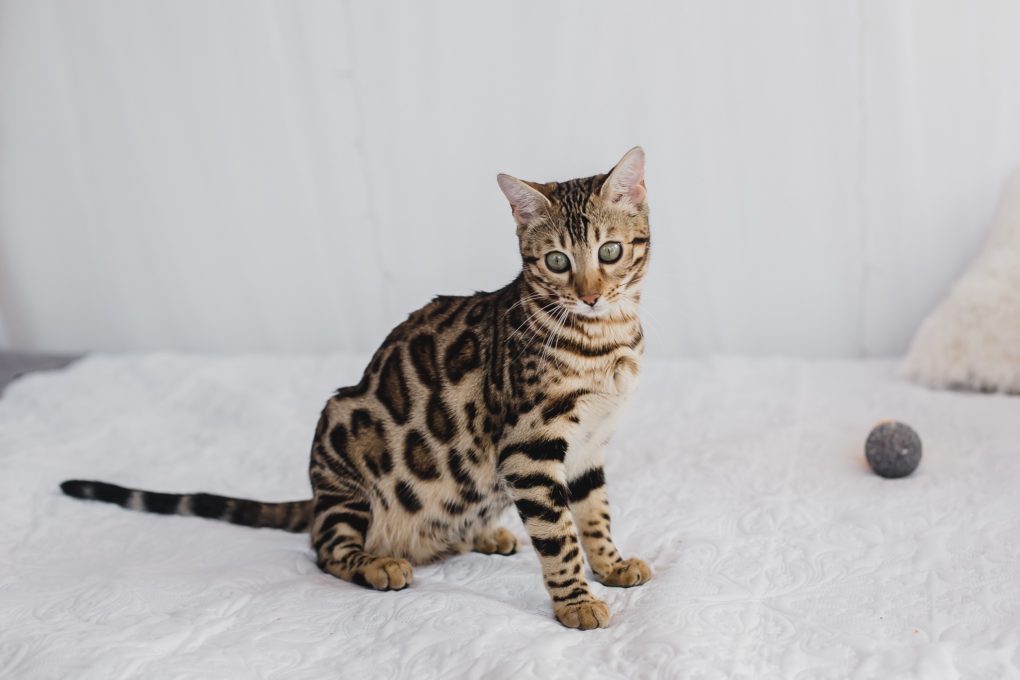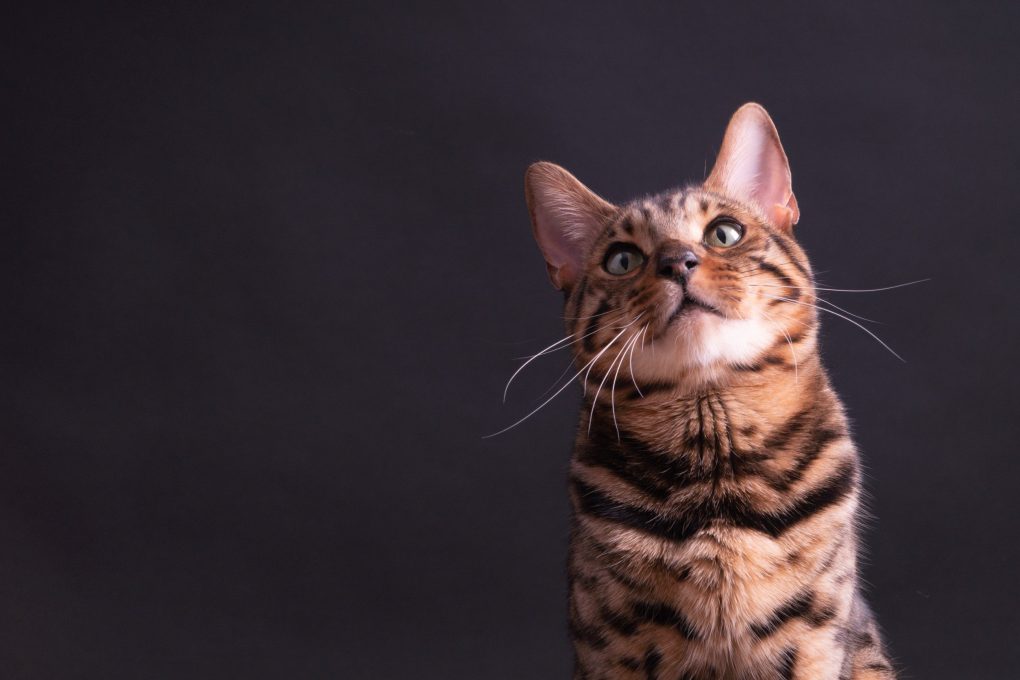Are Bengal Cats Hard to Take Care of: A Guide on Raising a Bengal Cat
No, Bengal cats can be considered high-maintenance in terms of their energy levels and social needs, but they are not necessarily challenging to take care of. They require similar care and attention as other domestic cats. However, owning a Bengal cat may require more time, patience, and understanding of its specific traits and needs.
Here are a few things to keep in mind when taking care of a Bengal cat:
- Energy levels: Bengals are known for being very active and curious and need plenty of play and exercise to keep them stimulated. This can make them more demanding in terms of playtime and attention than other cat breeds.


- Training: Bengal cats are brilliant and can be trained to do tricks and obey commands, but this also means that they may require more time and patience for training than other cats.
- Socialization: Bengal cats are known to be very social and enjoy human interaction. They may crave attention and become anxious if left alone for long periods.
- Grooming: Bengal cats have a short, shiny coat that does not mat easily and only needs regular brushing, like other domestic cats.
- Diet: Bengal cats require a diet high in animal-based protein, essential fatty acids, and a balance of vitamins and minerals. It’s important to consult with your veterinarian to determine the best diet for your Bengal cat.
Table of Contents
Grooming Your Bengal Cat
Brush Your Bengal’s Coat
A well-groomed Bengal cat has a sleek, soft coat free of mats and tangles. Regularly brushing your cat’s coat will help remove dirt and debris and stimulate the cat’s natural oil production. Here are some tips for brushing your Bengal cat’s coat to perfection:
- Use the right brush: A soft-bristled brush is best for brushing a Bengal cat’s coat. This brush will remove loose hair and prevent matting without irritating their skin.
- Brush in the direction of hair growth: Start at the head and work your way down the body, brushing in the direction of the hair growth. This will help to remove loose hair and prevent matting.
- Be gentle: Bengal cats have sensitive skin, so it’s essential to be gentle when brushing their coats. Avoid pulling or tugging on tangles; work through them gently with your brush.
- Brush frequently: It’s best to brush your Bengal cat’s coat at least once a week, but you can brush more often if they have a thick coat or shed a lot.
- Follow up with a comb: After brushing, use a wide-toothed comb to remove any remaining tangles or mats.
- Reward your cat: Make brushing a positive experience for your cat by giving them a treat or praise after grooming.
Occasional Bath


An occasional bath is required to keep your Bengal cat happy and clean. These cats do not require a lot of grooming, but periodic brushing and combing will help to remove any built-up dirt or mats. The key to caring for a Bengal cat is establishing a regular care routine and following it consistently over time. This will help ensure your cat stays healthy and happy long-term.
Here are some tips for bathing your Bengal cat:
- Brush their coat first: Brush your cat’s coat thoroughly before bathing to remove any loose hair and tangles.
- Use a mild, cat-specific shampoo: Confirming with Preventive Vet, avoid using human shampoo as it can irritate your cat’s skin. Look for a shampoo that is specifically formulated for cats, and that is free of harsh chemicals.
- Keep the water warm: Use warm water, not hot, to avoid irritating your cat’s skin.
- Be gentle: Gently massage the shampoo into your cat’s coat, starting at the head and working your way down the body. Avoid getting shampoo in their eyes, ears, or nose.
- Rinse thoroughly: Rinse your cat’s coat thoroughly to remove all traces of shampoo.
- Dry your cat: Use a towel or a hairdryer set on low to dry your cat’s coat. Be sure to keep the hairdryer at a safe distance to avoid burning your cat.
Clean Your Feline’s Eyes and Ears
Daily cleaning of your cat’s eyes and ears is essential for its health and well-being. Bengal cats are notorious for having oily eyes and ears, which can become clogged over time. Cleaning these areas will help to keep your cat clean and healthy. Here are some tips for cleaning your Bengal cat’s eyes and ears:
- Cleaning the eyes: Use a damp cloth or cotton ball to gently wipe away any discharge or debris from the corners of your cat’s eyes. Avoid using water, as it can irritate. If your cat’s eyes appear red or irritated or there is a lot of discharge, contact your veterinarian.
- Cleaning the ears: Use a cotton ball, a soft cloth dampened with warm water, or an ear-cleaning solution to clean the outer part of your cat’s ears gently. Be careful not to insert anything into the ear canal, as it can be dangerous and cause damage. Never use cotton swabs (Q-tips) in your cat’s ears, as they can push wax and debris further into the ear. Contact your veterinarian if your cat’s ears appear red, swollen, or have a foul odor.
- Timing: Clean your cat’s eyes and ears regularly, at least once a week. If your cat has a lot of hair around their ears, trim the hair around the ear opening to make it easier to clean.
- Be gentle: Always be gentle when cleaning your cat’s eyes and ears, and stop if your cat becomes agitated.
- Observe your cat: Observe your cat’s behavior and if you notice any signs of discomfort, such as shaking their head, scratching their ears, or excessive ear wax, contact your veterinarian for advice.
Dental Health


You can use a toothbrush to clean the Bengal cat’s teeth and gums and special cat dental food to help strengthen the tooth enamel. Regular dental care will help keep your Bengal cat’s teeth and gums healthy and free from dental disease. By taking care of your cat’s oral health, you can ensure its long-term health and happiness.
Bengal Cat Diet
Animal Protein
A Bengal cat’s diet should include animal protein to help maintain muscle and bone health. Bengal cats are obligate carnivores, requiring a high-quality animal protein source to meet their nutritional needs.
Some of the best animal proteins for a Bengal cat diet include meat, poultry, and fish, so providing your cat with a varied menu is essential to ensure they get all the nutrients they need.
Animal Fat
A Bengal cat is a domestic cat native to the Bengal region of India. These cats are typically healthy and playful but can be sensitive to changes in their diet. For example, good cat food for Bengal cats would contain animal fat, providing them with essential nutrients and Omega-6 fatty acids.
Vet-Formulated Recipes
The untamed cat care app offers a variety of recipes that are specifically formulated for Bengal cats. The recipes include customized food and water dishes and litter and bedding recommendations. In addition to this, the app also provides advice on how to keep Bengal cats entertained and healthy. It is an excellent resource for cat owners looking to save time and money while caring for their cats.
